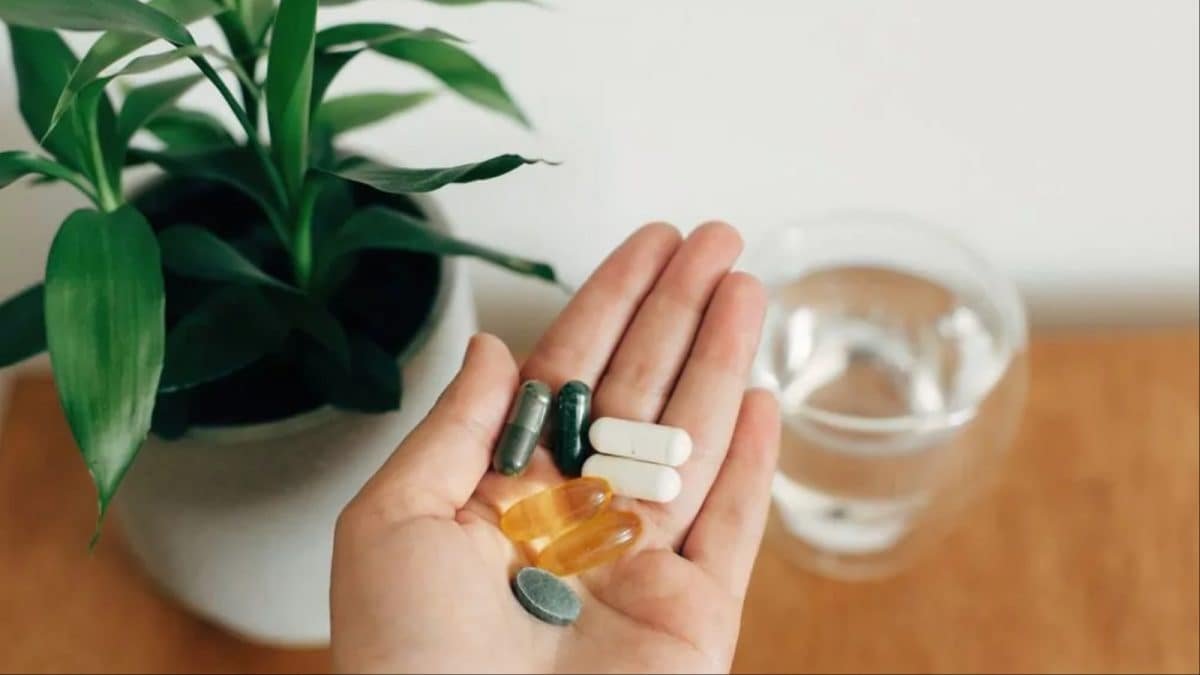Last Updated:
While going vegan offers many benefits, it also requires careful attention to nutrition. Certain vital nutrients can be challenging to obtain solely from plant-based sources.

Omega-3s from algae supplements support heart and brain health.
Switching to a vegan or vegetarian lifestyle is a big step often rooted in health goals, ethical choices, or environmental concerns. But while cutting out animal products can have many upsides, it also means being extra mindful about nutrition. Some key nutrients aren’t as easy to get from plant-based foods alone, and that’s where smart supplementation comes in.
To help you stay strong, energised, and balanced, here are five supplements plant-based eaters shouldn’t overlook.
Vitamin B12
Vitamin B12 is crucial for red blood cell formation, neurological function, and DNA synthesis. Since it’s naturally found only in animal products, vegans and some vegetarians are at risk of deficiency. Symptoms of deficiency can include fatigue, memory issues, and nerve damage. Supplementation is essential to maintain adequate levels. Experts suggest a daily intake of 2.4 mcg for adults, 2.6 mcg for pregnant women, and 2.8 mcg for those who are breastfeeding.
Omega-3 Fatty Acids
Omega-3 fatty acids can be divided into two categories:
Essential omega-3 fatty acid: Alpha-linolenic acid (ALA) is the only essential omega-3 fatty acid that can be found in foods like chia, flax and walnuts.
Long-chain omega-3 fatty acids: Omega-3s, particularly eicosapentaenoic acid (EPA) and docosahexaenoic acid (DHA), are vital for heart and brain health. These are commonly found in fish, but vegans can obtain them from algae-based supplements. Including these in your diet can help reduce inflammation and support cognitive function.
Vitamin D
Vitamin D supports bone health, immune function, and mood regulation. While sunlight exposure can help the body produce vitamin D, factors like indoor lifestyles and geographic location can limit this. Plant-based diets often lack sufficient vitamin D, making supplementation important, especially during the darker months.
Iodine
Iodine is important for thyroid function and metabolism. Plant-based diets can be low in iodine, especially if iodised salt is not used. Including sea vegetables like seaweed can help, but supplementation ensures consistent intake.
Iron
Iron is essential for transporting oxygen in the blood. While plant-based sources of iron exist, they are not as easily absorbed by the body as those from animal products. Consuming vitamin C-rich foods alongside iron-rich plant foods can enhance absorption, but supplementation may still be necessary for some individuals. People low on iron must take 18-27 mg of Iron supplements daily.
While a well-planned vegan or vegetarian diet can provide many health benefits, being mindful of these potential nutrient gaps is crucial. Regular check-ups and blood tests can help monitor nutrient levels, and appropriate supplementation can support a balanced and thriving plant-based lifestyle.
- Location :
Delhi, India, India
- First Published:
Source link



